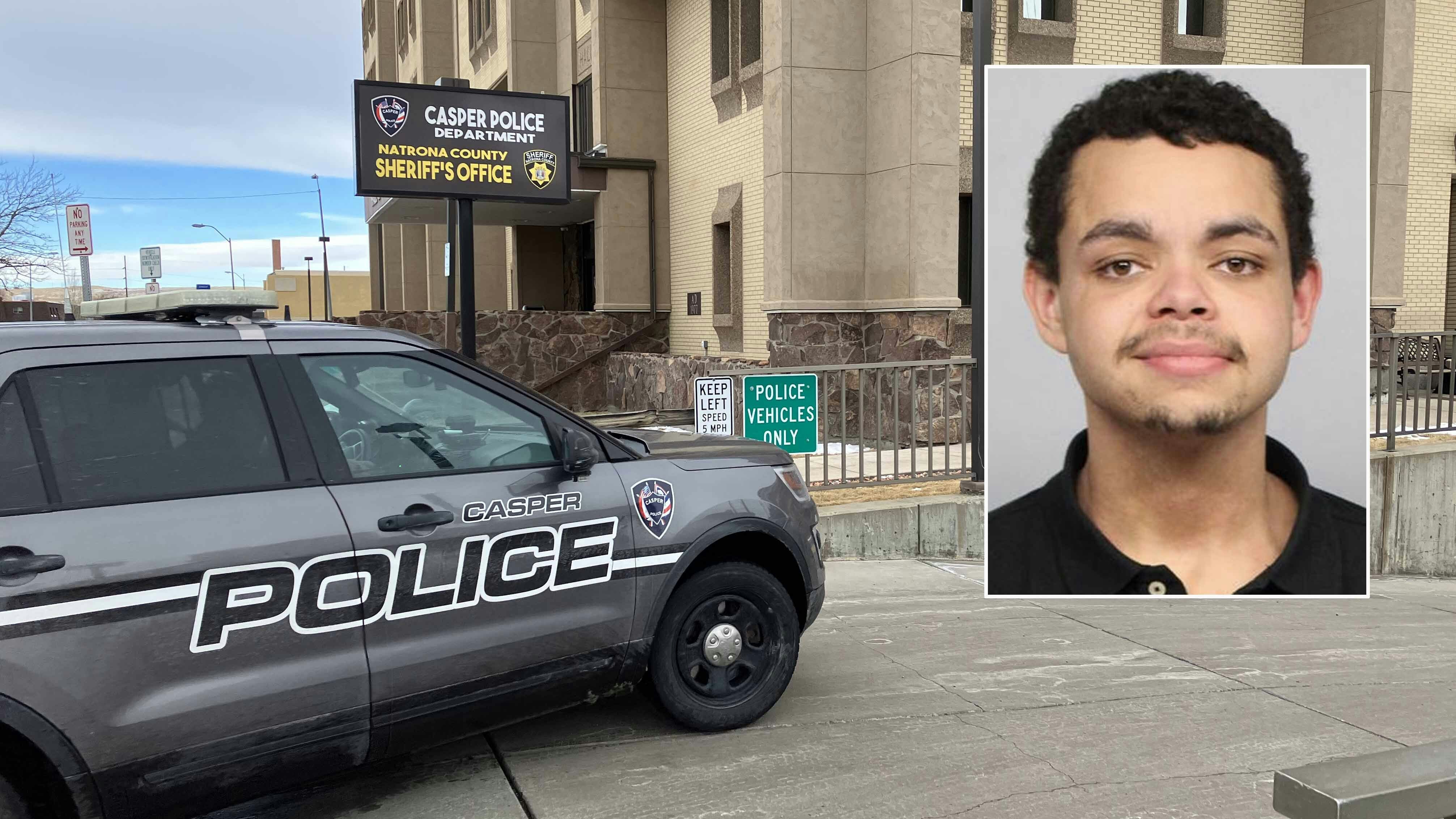Because nobody established that a Rawlins, Wyoming, woman actually injured her 3-year-old son and 4-year-old granddaughter by crushing prescription sleeping pills into their milk, the Wyoming Supreme Court on Wednesday gave the woman a chance at a new trial or plea agreement.
Jennifer Elizabeth Lynch, also known as Jennifer Stracener, pleaded guilty to child abuse May 24, 2023, for giving her mother Seroquel, a prescription sleeping pill, to crush in her son and granddaughter’s milk so they would sleep, according to court documents
The investigation started in December 2022 when Lynch and her wife went to the Memorial Hospital of Carbon County emergency room with all five of the children under their care showing signs of the respiratory sickness RSV, documents say.
Lynch’s wife told hospital personnel that Lynch had been giving the children prescription Seroquel. She also said she wanted to leave Lynch, says the court record.
Lynch admitted to the doctor and later to investigators that she gave her son and granddaughter bottles containing crushed Seroquel to “help them sleep.”
She’d been giving the girl the drug for months since the girl had sleep apnea, was overweight and could not lie flat to sleep. The high court’s ruling says Lynch said she had tried melatonin, but that wasn’t effective.
A nurse told investigators that Seroquel could relax the children’s throat structures, making it harder for them to breathe.
Meth In The Basement
Officers searched Lynch’s home, which Lynch shared with her wife, mother, an adult daughter, a family friend and five children.
Police discovered that Lynch’s adult daughter and the family friend had been using methamphetamine in the basement, the Wyoming Supreme Court’s order says.
The daughter and friend were arrested and charged.
Lynch was arrested and charged with aggravated assault and child endangerment. Her mother was charged similarly for helping dose the children with Seroquel, court documents say.
The prosecutor did not charge Lynch’s wife.
Actually, Child Abuse
Lynch struck a plea agreement, deciding to plead guilty to one felony count of child abuse and one misdemeanor count of endangering children instead of pleading to the aggravated assault charge originally filed.
The state changed its charges to reflect that agreement, but didn’t introduce a new probable cause document.
Carbon County District Court Judge Dawnessa Snyder held a change-of-plea hearing for Lynch in May 2023.
Admitting To This Crime In Particular
Snyder asked Lynch to explain what made her guilty of the charges, a reference to a Wyoming criminal procedural rule requiring judges to establish a factual basis for a person’s guilty plea before accepting it.
In other words, the defendant needs to show that she understands the charge, and she needs to acknowledge that her crime fit that charge before the court will accept her guilty plea.
This rule is designed to prevent people from pleading guilty for things they didn’t do.
Lynch admitted to giving the children Seroquel, and she admitted that the girl “wasn’t getting the health care that she needed,” the order recounts.
That wasn’t enough to establish a factual basis for the charge of child abuse, since one is not guilty of child abuse unless she “injured” a child.
So, the prosecutor asked the judge to draw factual basis from the case evidence as well, which showed that the girl was suffering both sleeping and breathing problems.
“By providing the Seroquel, it was an additional suppressant to her ability to breathe, which was essentially forcing her to go to sleep,” the prosecutor said. “That was the physical injury in this case.”
Lynch said she agreed with this characterization.
Not Probation As Planned
Lynch’s plea agreement had offered her probation in exchange for the guilty plea.
But judges are not bound by plea agreements, though they show them some respect.
Snyder decided probation was not appropriate. She sentenced Lynch to between nine and 10 years in prison on the child abuse charge and called the sentence a wash for time served on the child endangering charge.
Lynch protested in a handwritten letter to the judge.
She blamed her attorney, she claimed her guilty plea was only a maneuver to “get the case over,” and she contended that her wife was actually the one who dosed the children, court documents say.
Lynch’s plea agreement had stipulated that Lynch would not be allowed to withdraw her guilty pleas, and Snyder did not let Lynch withdraw her guilty pleas.
Snyder may also have had in mind a 2020 case in which Lynch was convicted of animal cruelty for crossing Rawlins with a U-Haul full of dead and dying dogs, and other dogs living in filth while out in below-freezing February temperatures. Lynch was sentenced to a year in jail, but received a sentence reduction after she told the judge she had tachycardia and had spent time in intensive care.
Could Be Injury
After she didn't get probation, Lynch appealed her child abuse case to the Wyoming Supreme Court.
The high court's analysis of this case discusses the elements and definitions behind Wyoming’s child abuse law.
A person is only guilty under that law if she injured a child, and “injury” includes any harm to a child including but not limited to:
• Disfigurement
• Impairment of any bodily organ
• Skin bruising that is worse than minor bruising from reasonable corporal punishment (such as a spanking)
• Bleeding
• Burns
• Any bone fracture
• Subdural hematoma
• Substantial malnutrition
Lynch’s case evidence, her presentence investigation and her own testimony established that the pills forced the children to sleep. They also established that the Seroquel could have injured the children’s respiratory systems. But they didn’t prove that the Seroquel did so, according to the high court’s order.
“The factual basis establishes only that Ms. Lynch gave (the child) a substance that acted as an additional respiratory suppressant that caused her to sleep,” says the order. “There is no evidence that the Seroquel harmed (her) in any way.”
The high court said it can’t infer that Lynch inflicted an injury on the girl, despite the drug’s potential harms.
The high court reversed Lynch’s conviction for child abuse and sent the case back down to the district court for a new trial or a second chance at a change of plea.
Clair McFarland can be reached at clair@cowboystatedaily.com.





